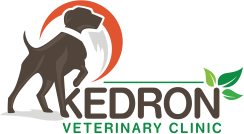Intestinal worms are common parasites in cats and dogs and if left untreated may cause severe illness or even death.
The importance of prevention in controlling your pet’s intestinal worms should never be underestimated.
Some worms that infect our pets can pose a significant health risk to our family members, it is for this reason we recommend all puppies and kittens are wormed every two weeks until 12 weeks of age, then every month until they reach 6 months of age and then every 3 months for the rest of their life.
Listed below are some of the common intestinal worms which can affect your pet:
Hookworms
Hookworms are the most destructive of the intestinal worms.
Signs may include
- Diarrhoea – with blood staining
- Pale gums (Anaemia)
- Dehydration
- Weakness and death
Hookworm can either infect your pet by ingesting the larvae or the by the larvae passing through the skin, especially the feet.
Flea Tapeworm
Flea Tapeworm is the most common of the Intestinal worms.
Signs may include
- Dragging or scooting their bottom along the ground
- Worm segments in the faeces
Flea Tapeworm can infect your pet by ingesting an infected flea, often this occurs during grooming or ingesting contaminated soil.
Hydatid Tapeworm
Hydatid Tapeworm is a serious risk to human health.
Signs include
- Cysts that form commonly on liver and lungs and other major body organs
Cysts often don’t cause any symptoms unless they become large and rupture.
Hydatid Tapeworm can infect your pet by ingesting contaminated soil/grass or ingesting raw meat/offal (body organs) infected with cysts.
Roundworm
Roundworm is also another of the common worms.
Signs may include
- Pot belly appearance
- Ill thrift
- Diarrhoea
- Vomiting
- Coughing
Roundworm can infect your pet by ingesting infected rodents, faeces, soil, while suckling milk and transferred from their mother’s placenta.
